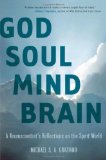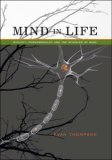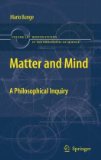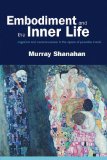social perception in ‘God Soul Mind Brain: A Neuroscientist’s Reflections on the Spirit World’
August 22, 2010
Despite the title, God Soul Mind Brain: A Neuroscientist’s Reflections on the Spirit World (link for amazon.co.uk) is not primarily about religion or the spirit world from a neuroscientific perspective. Instead, gods and spirits figure as examples of a more general process of social perception that is the real focus of the work.
In a clear, reader-friendly manner, author Michael Graziano describes social perception as a mechanism for constructing simplified models of mental states and intentions. Because we are social animals we developed this capacity for constructing models of other minds. As with perception of objects, social perception is subject to illusions, such as the illusion that a ventriloquist’s dummy is a separate person.
Simplified models of intentionality consist of “point agents” assigned to spatial locations. Such mind-models are the source of concepts of spirits and souls. In this approach, for example, the God of monotheism represents “the perception of a single unified mind behind every otherwise inexplicable event.”
Graziano argues that consciousness can also be understood as a social perceptual model applied inwardly. The account of consciousness seemed to be the real core of the book, an original approach to the problem with potential applications from AI to multiple personality disorder.
Also included is a discussion of the brain circuitry involved in social perception, primarily the superior temporal polysensory (STP) area and the temporo-parietal junction (TPJ).
Graziano also discusses social imitation and memes as the source of human culture. What is missing is an account of the role of culture in affecting what kinds of entities (gods, spirits, souls, etc.) are modeled by the social perceptual system.
[Thanks to Leapfrog Press for allowing me to view an advance copy via NetGalley].
Product description from the publisher:
Written for the general public, God Soul Mind Brain explores the controversial relationship between science and religion by first dismissing the “science versus religion” debate as outdated and unnecessary. The cutting-edge field of social neuroscience explains how our perceptions of our own consciousness, of other people’s minds, and of spirits and gods depend on machinery in the brain that evolved to make us socially intelligent animals. In clear prose without technical jargon, Graziano discusses his and others’ findings in this 20-year-old field of study, and the implications for human spirituality and religion. By addressing head-on the fundamental issues of human consciousness, religion, and God, and how these elements relate to the science of the brain, Graziano presents an entirely new view of religion and science.
See also: “Why We See Spirits and Souls”, Graziano’s article at “Big Questions Online,” with lots of comments; author’s website
Comments (0) - cognitive science,consciousness,culture,new books







